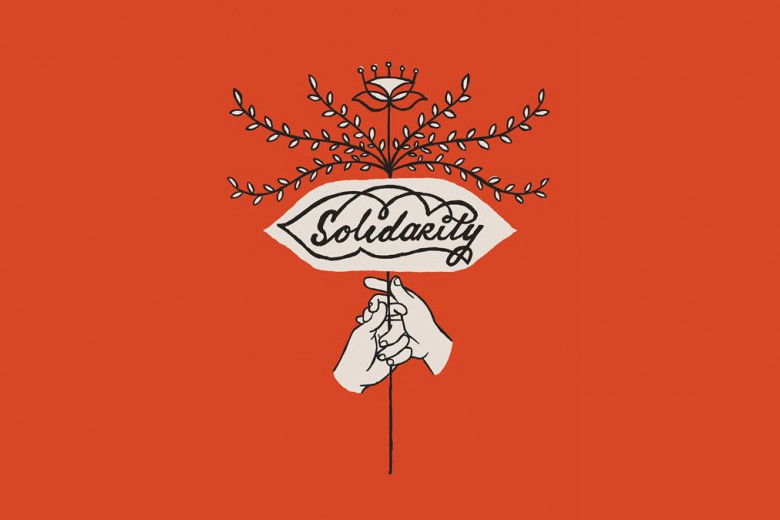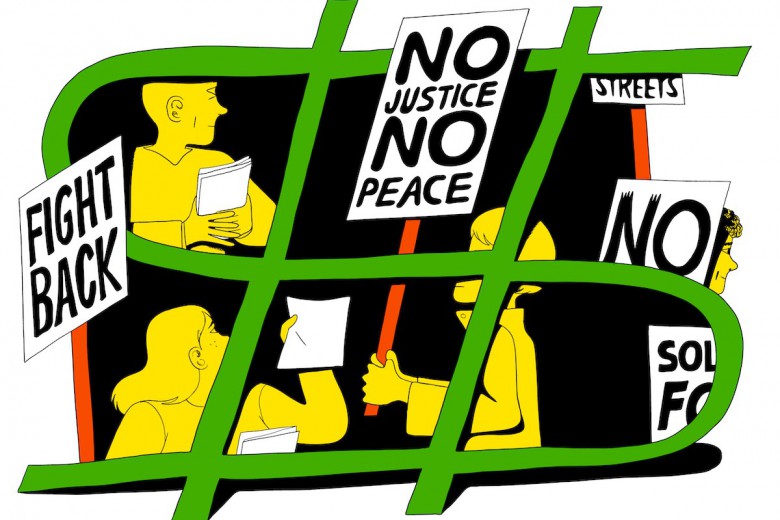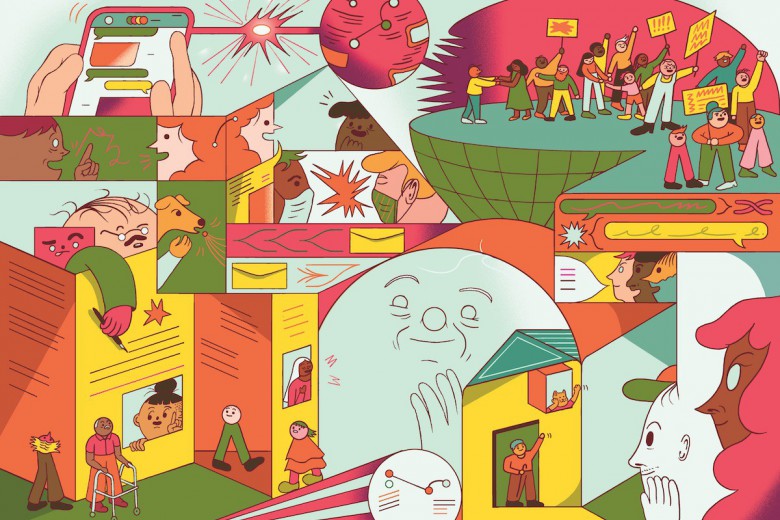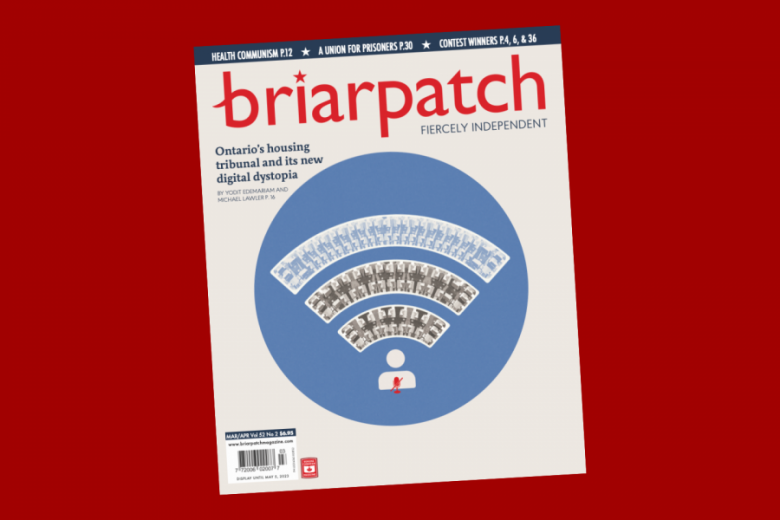Will anyone remember COVID-19? Already in 2023, one senses a strong reluctance to dwell on it. The Great Influenza Epidemic of 1918–20, as Laura Spinney notes, has gone almost uncommemorated (while there are tens of thousands of monuments to the First World War with which it coincided). The drive to “turn the page” and forget is strong.
In the pandemic’s first year, leftists hoped that the pandemic’s harsh lessons for subalterns of all descriptions might result in their coming together in a united front capable of challenging a transparently self-destructive system. Instead, the radical right, some of it strongly reminiscent of classic fascism (and, in Sweden, Hungary, Italy, Ukraine, Brazil – and India, as Tithi Bhattacharya reminds us – drawing quite directly on fascist ideas and symbols) is on the march, attracting to its banners large numbers of discontented people. Added to this turbulence is a new Cold War in which, as before, liberals will find ways to reconcile their ostensible commitment to human rights with strategic and profitable alliances with regimes that routinely violate them.
If the crisis of that system grows ever deeper and its contradictions more species-threatening, perhaps a revived and reimagined left, reacquainting itself with class realities and the imperative of transforming the state, can once again imagine a different way of life for humanity. There is a lot – humanity itself – at stake.
Tithi Bhattacharya
The priorities of capitalism are still absolutely not about preserving life. We can see this in so many distinct ways. In every single decision capitalism was forced to take, before the vaccines came out, you could see the kind of things the system is capable of. Overnight, hospitals were built, hotel rooms were commandeered by governments to house houseless people. In Britain, everyone was given a minimum wage while they stayed away from work. The system went on a sort of war footing to make sure the pandemic was dealt with. But the minute it stabilized to a certain extent, the whole effort of the system was put into getting people back into work.
In the United States, the question of school closing for kindergarten to high school students has been all about putting their parents back into work. So, to me, here I think capitalism demonstrates very clearly what its priorities are. And its priorities are: “Yes, there is a pandemic we need to survive, and once we’ve passed the big swirl, we just need to put people back into work.”
To me this is criminal in so many ways. It is going to affect certain populations far more than others. I have a choice, sometimes, to work online. The person who checks out my groceries does not, so she has to go to work every day and she is not given any protection by my local government. So certain populations will simply die off. Disabled people, people in dangerous jobs in the meat production plants (we saw how the virus ripped through them). Union protection is very low in the United States. Even where there are unions, they are often business unions and they do not protect their members adequately.
The system went on a sort of war footing to make sure the pandemic was dealt with. But the minute it stabilized to a certain extent, the whole effort of the system was put into getting people back into work.
This is the short-term sort of component of the system coming to the fore: “We need to get people back to work, we need to continue to make profit. Life be damned, we need to get people back to the workplace.”
More and more I hear people saying things like, “Zero COVID is not possible.” This is the sort of absolute ideology coming from the ruling class. “Zero COVID is not possible; COVID has to be endemic.” What does that mean? It simply means that we’re just going to have to sacrifice some of our lives in order for us to live with COVID. So, “Zero COVID is not possible; we’re not going to stop the profit-making in order for some life to be protected, in order for us to defeat the virus. We’re just going to sacrifice some lives in order for us to normalize COVID.”
I don’t know if the system can be saved. The long-term prospects of the system look really, really bad, not just in terms of profits but also (more seriously) in terms of the climate crisis. This is a case of capitalism playing out as in the Don’t Look Up scenario: “I’m not going to look at the climate crisis, I’m going to focus on short-term profit-making.” Fossil fuels continue to dominate the conversation in all countries. In the long term, the prospects of the system look really poor.
Nora Loreto
I think there will be a tendency to not commemorate [the COVID-19 pandemic]. There are few governments with an interest in commemorating it. Unless average people commemorate themselves through culture, or music, or some sort of collective production, even people putting up their own monuments – we’re not going to see much of anything. You might see a plaque someday at certain facilities where there were mass deaths. Maybe.
Where I’m situated in Quebec City, right across the street, there was a field hospital for the 1919 flu. There’s no commemoration of it at all. Many, many people must have died there. But, when you go into Lower Town, less than a kilometre from where I am, there’s a memorial to the five Quebeckers shot dead in the anti-conscription protests, the Easter Sunday massacre. It’s important to remember them. Yet, still, literally no commemoration of the hundreds of people who must have died in that field hospital.
What I wonder about is: at least the 1918–20 flu epidemic took place at a time when people still did live in community. There were collective ways of handling the trauma of war. The full impact of it would be felt in the 1930s. There were still families that would make music together, extended families, there were language-groups communicating with one another – in a way that doesn’t exist today.
Where does our trauma go in a digital age? We’re told the Internet is our community, now. That’s really what worries me the most. It will make us far sicker. It will make the trauma far worse, and we will have nowhere to channel it. I think we are in for a post-COVID, post-trauma crisis that is going to be immense. Without a single politician who knows how to fix it, their policies [are] likely making it worse.
I’ve got messages from people who’ve read my book Spin Doctors who tell me it made them feel better. Which is very weird because the book can really be considered quite pessimistic. In essence: the government could have chosen “not destruction” and they picked “destruction.” And this is on every single page. It’s still leaving people with a sense of – I’m not sure I’ve got the right word – purposefulness. A sense of what has happened. There’s power and there’s hope in recovering the sense of what happened.
Naomi Klein
The history of capitalism is a history of enclosure. It’s a history of bringing swaths of life that are outside of the market and enclosing them inside the logic of the market – and in the process, transforming them. Once something is within the logic of the market, what it needs to do is completely different. If we think about enclosures of land in the British countryside, it isn’t just that a fence was put around previously communal farmland where people who lived around that land used to be able to graze their animals, were able to collect firewood. It’s that the role of that land also changed, and it now had to yield crops. So, it’s both enclosed and changed.
I would say that the history of neoliberalism is a history of a whole new kind of enclosure that began with enclosing parts of the state that had been kept outside of the reach of the market, like education and health care, and bringing them in.
We have stopped trade deals before and we have won huge victories for the public good, but there is no substitute for truly broad-based organizing, with a willingness to take action.
Where we’re at now is so radical because what’s being enclosed is us and our relationships. (Enclosing human beings within capital is not new – that’s what slavery is. It’s turning free human life into a commodity, in the most violent way imaginable.) What we’re seeing with surveillance, what Shoshana Zuboff calls “surveillance capitalism” or Nick Couldry and Ulises A. Mejias called “data colonialism,” is a process of enclosure whereby our friendships, our speech, this conversation are enclosed in a corporate platform. The data from our conversations become a raw resource to be extracted, and then the purpose of the conversations changes. The purpose of the conversation for Google is not to facilitate us having a conversation; it’s to extract the data to drive more engagement on their platforms so they can sell ads. I think that’s the radical edge of what’s happening with neoliberalism.
This is not new. Our governments have been doing the bidding of corporations now for a very long time. We have found ways to come together and stand up and out-organize our opponents. We have stopped trade deals before and we have won huge victories for the public good, but there is no substitute for truly broad-based organizing, with a willingness to take action. It isn’t just about voicing our opinions. It’s actually about interrupting business as usual, withholding labour.
Nora Loreto
Every single one of our social issues is only going to be solved by some level of collectivity. This is the biggest challenge. That’s the case when we look at climate change, housing, any number of issues. I think what was very interesting with the pandemic is that it was often a radicalizing moment. People talk about how leftists have to do education, and education is really important. You have to teach people certain things and give people the words or the understanding of whatever they’re experiencing.
The pandemic was a crash course. There were a lot of things that were taught during the pandemic that we don’t have to sit down and explain to people. We don’t have to go through this process of education in a theoretical way. Many people now have had this direct experience. People will not recover easily from the trauma of the past two years. And from how their state has failed them. The biggest struggle for the left is: How do we inject community back into our communities? How do we break that isolation?
One of the things that exploded during the pandemic was this idea of mutual aid. I grew up in a religious family, I worked for the Catholic church and a lot of it looked like traditional “church-lady” stuff. Yes, it kept people alive, communities alive, fed people, gave people a reason to live. But it’s not activism. All of my aunts were feeding the poor. But they weren’t changing society. There has not been much analysis of the difference between feeding the poor and revolutionary societal change. We’re not insulting people when we say that feeding the poor is not revolutionary.
This is the biggest problem with the left right now. There is a lack of understanding. Even if we’ve been radicalized around all the structural problems in society, there’s a fundamental lack of understanding of social change and of revolutionary change – the distinction between revolutionary change and what is just maintenance to keep people alive. We have to do both – it isn’t one or the other. Church ladies are great. We need them. They’re not revolutionaries.
“The biggest struggle for the left is: How do we inject community back into our communities? How do we break that isolation?”
I’ve never despaired during this pandemic. I was not surprised by many things. There was no moment when I was shocked by anything or surprised by anything. And one comes away with a clarity of understanding about what needs to be done. It’s very, very clear. Of course, how we get it done is up for debate and discussion, which we have to engage in. But it is very, very clear what the source of all our problems is, who the sources of our problems are.
I think that is hopeful, because there’s a clear path forward. You have to break up monopolies. You have to break up the banks. You have to have public ownership. We have to reassert our power over this fake democracy in which we live. There are movements that people can get involved with. There’s resurgence, excitement. In every single community in this country, there are movements that people can get involved with. That’s extremely hopeful.
What isn’t hopeful is confusion. Why is your CERB [Canada Emergency Response Benefit] being clawed back? Why are you expected to put your life on the line to serve coffee? When you bring sense to it, then you can actually start to do something. We need to unionize. Or, our union’s not that great – so we need to fight them or take it over or change unions. Once people are given the path to fixing things, the despair becomes a lot less over-powering. We know what we have to do.
*This is an adapted excerpt from Ian McKay’s forthcoming book Crisis and Contagion, which will be published in October 2023.







